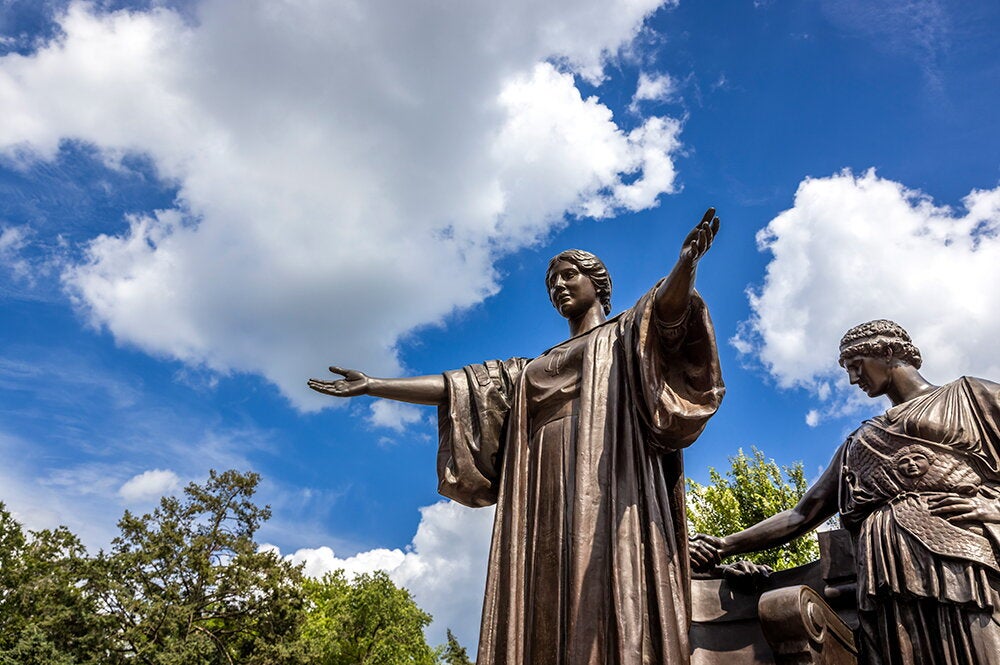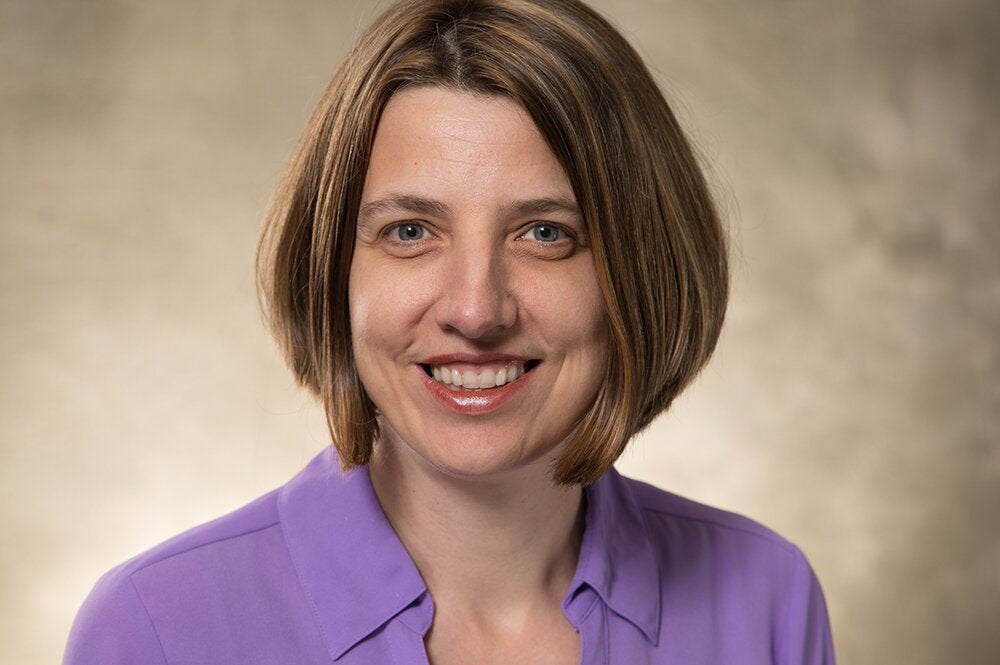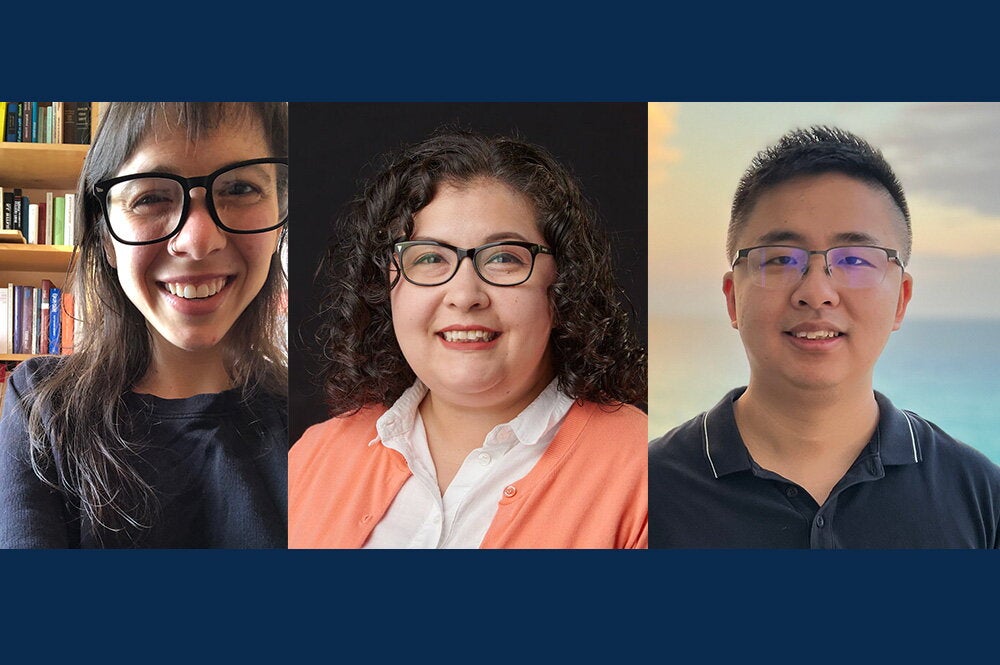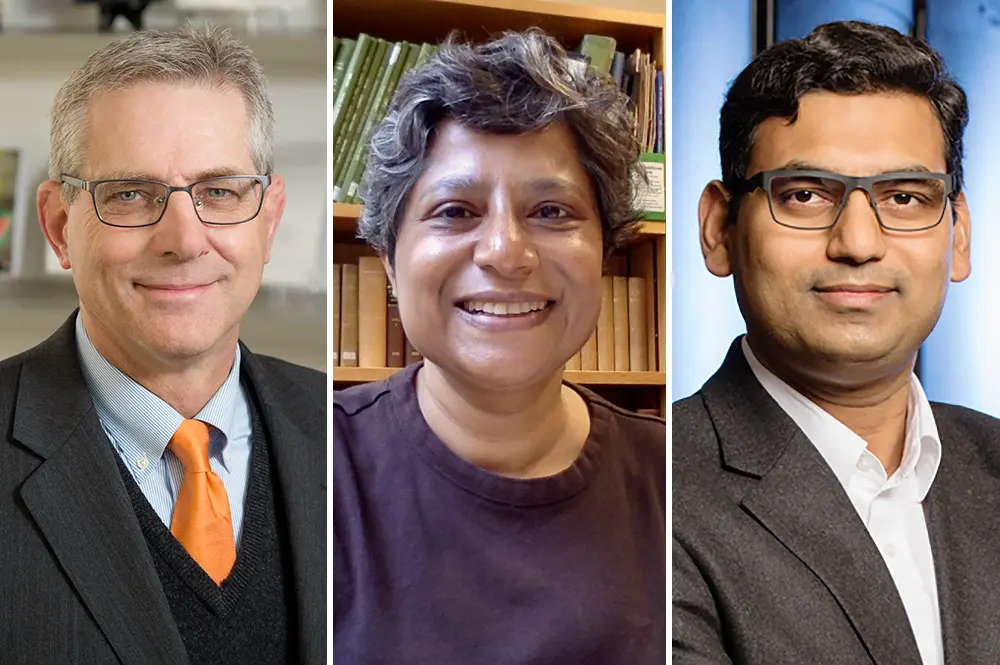
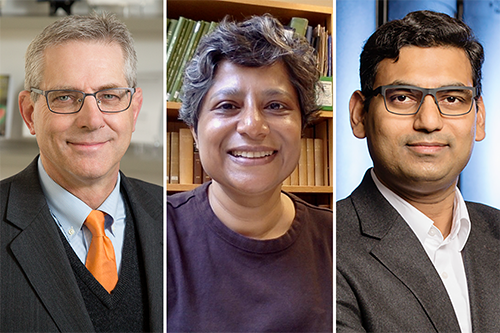
The National Center for Supercomputing Applications has announced seven new faculty fellows for the 2019-2020 school year, including three professors in the College of Liberal Arts & Sciences.
Rina Mehta, professor of comparative and world literature, Diwakar Shukla, professor of chemical and biomolecular engineering, and Kevin Leicht, professor of sociology, have all been chosen for the NCSA Faculty Fellowship.
The fellowship is a competitive program for University of Illinois faculty and researchers that provides seed funding for new collaborative projects. NCSA staff members will collaborate with each professor on their respective projects.
Rina Mehta - The Big Picture: Media, Capital and Networks of Influence
Mehta’s project will see her collaborate with several NCSA staff members and will partner with the Global Film History from the Edges project, which has been awarded $150,000 by the University of Illinois Presidential Initiative for the Advancement of Humanities and the Arts.
Researcher’s abstract (in her own words): “The Big Picture proposes to build a map of the global network of media, corporate power, and political influence that was engendered by globalization and which in turn continues to shape our world in the 21st century.”
“The world that we inhabit today is caught in the interstices of political, economic and cultural forces that operate in between fault lines of nations, regions, and ideologies. Visual technologies and arts are as much complicit in manufacturing and manipulating history as they are involved in disseminating history as it unfolds.”
“Our project will connect realpolitik and representation to capture a media history of the current times, in a global context. Using methods gleaned from the ontology-based models such as FOAF (friend of a friend), The Big Picture will bring together media studies, history, statistics, data curation, and advanced visualization to produce a dynamic interface accessible through a website. This project will partner with the PI’s Global Film History from the Edges project that has been granted $150,000 by the University of Illinois Presidential Initiative for the Advancement of Humanities and the Arts.”
Diwakar Shukla - Enabling Long-term Reuse of Experimental and Computational Datasets on Protein Dynamics
Shukla’s project will aim to convert biomolecular dynamics data produced by supercomputers into an accessible format for experimental researchers, specifically in protein dynamics.
Researcher’s abstract: “Modern molecular simulations of proteins on high-performance computing resources such as Blue Waters generate extensive atomistic-detailed information about protein dynamics, which could be leveraged for obtaining insights about molecular origin of human diseases, design of therapeutics, and bioengineering of plants. However, the key challenge is to convert the terabytes of biomolecular dynamics data generated on supercomputers into a format accessible to an experimental researcher.”
“In this proposal, we present an approach that not only generates suggestions for optimal experiments based on simulation data (e.g. for validation of simulations) but also integrates the existing experimental and simulation information to generate comprehensive models of protein dynamics that are missing from the current literature. We have developed algorithms that provide an approach that maximizes information gain for the design of experiments given simulation data.”
“We propose to work with NCSA collaborators to implement a cloud-based platform and a user interface for this proposed service. NCSA will benefit from working on this project by gaining more expertise in applying cyberinfrastructure int the realm of biomolecular dynamics. The biggest impact of the proposed study is that it provides an accessible tool for experimental researchers to help harness the knowledge hidden in the big protein simulation datasets generated using Blue Waters and other high-performance computing resources. This work will have a transformative impact on how protein science is conducted by experimental and computational research groups.”
Kevin Leicht - The War on Professional Expertise: The Global Spread of Online Myths About Medicine and Health
Kevin Leicht will partner with journalism professor Brant Houston to help create the basis for a larger research grant that will be submitted to the Knight Foundation or the National Institutes of Health.
Researcher’s abstract: “The spread of dubious or downright false information (sometimes referred to as “fake news”) is a growing social, cultural and scientific dilemma, and the situation is especially troubling when it comes to information about medicine and public health. The most recent manifestation of the real world consequences of dubious medical information is the spread of measles and its link to anti-vaccination websites and memes.”
“But that is only the most recent manifestation — others include the peddling of conspiracy theories and fake cancer cures, organized misinformation about stem cell research, and the spread of dubious claims about alternative medicines. There is further evidence that some of this dubious information is deliberately produced for financial gain or to fuel cultural discord.”
“The purpose of this project is to examine the routes through which medical misinformation spreads in the news and social media. The research will examine medical misinformation in four areas; (1) vaccinations, (2) cancer cures, (3) the spread of the Ebola virus, and (4) the safety of contraception. Misinformation is defined as information that is publicly available and disseminated that is not supported or actively contrary to established medical advice. For this fellowship, we will use the considerable news resources of the Cline Center archive and then use the resources and expertise of NCSA to (1) explore methods for searching and applying models to identify relevant news articles on our selected healthcare topics, (2) develop a model for identifying dubious and false information in these articles, (3) rendering the data suitable for quantitative analysis, and (4) aiding the principal investigators in conducting the analysis.”
Additionally, Hope Michelson, a professor in agricultural and consumer economics, Yumeng Li, a professor in industrial and enterprise systems engineering, and X. Shelly Zhang, a professor in civil and environmental engineering, have been named Faculty Fellows and will carry out collaborative projects of their own with the NCSA.
